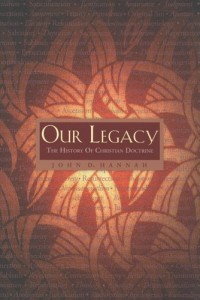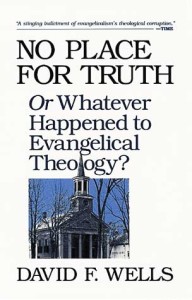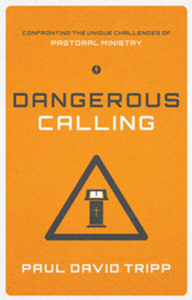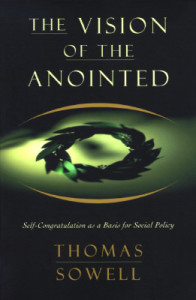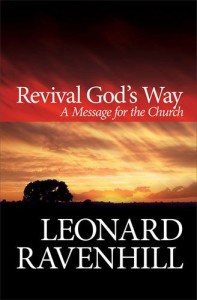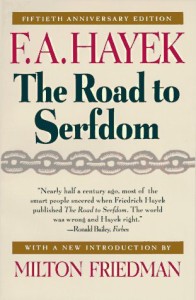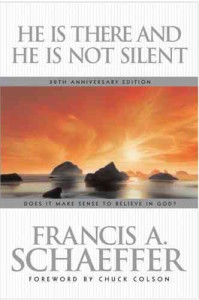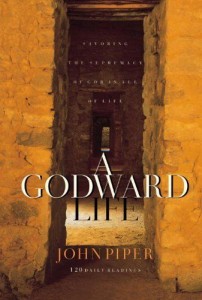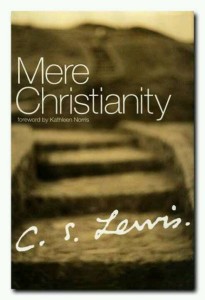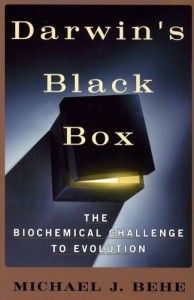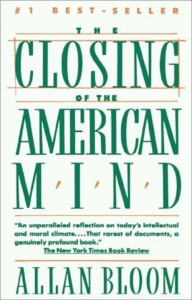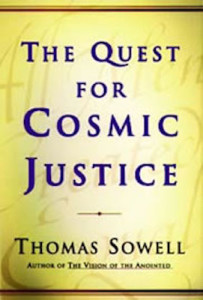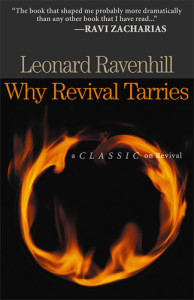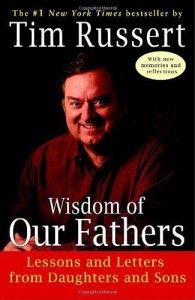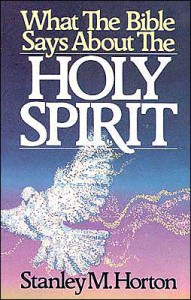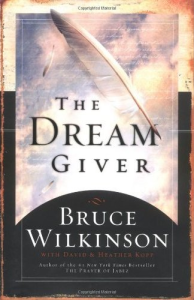THE CHRONICLES OF NARNIA – C.S. LEWIS
JPC 60-Second Review: No publisher’s notes are needed. This series is world famous, and deservedly so: these seven books are the summit of fiction writing. However, don’t be confused: in these fictional accounts, Lewis communicates the ultimate truths of life: God, God creating the world and mankind, man’s fall in sin and subsequent separation from God, God at work in the world to prepare it for redemption, the Redeemer and His self-sacrifice, the Resurrection, the Second Coming, eternity and much, much more. When our daughters were growing up, we worked through this series three complete times in bedtime reading and discussion. Even as an adult, I was captivated not only by Lewis’ ability to write theology in narrative, but simply by the narratives themselves. I still am. My personal favorite is the one that launched them all: The Lion, The Witch and the Wardrobe, but picking a close second would be an impossible assignment! In a perfect world, I would sit by a warm fireplace, a cup of coffee in one hand and this series in the other. Farther in and farther up!
OUR LEGACY – JOHN D. HANNAH
JPC 60-Second Review: An outstanding and very readable theology book, this would be a great place to begin your systematic study of the essential doctrines of Scripture. The Authority of Scripture, the Trinity, the person of Jesus Christ, the work of Christ, salvation, the Church, the end times – each of these seven doctrines are presented, but in a most intriguing and effective way. Hannah presents a basic biblical understanding of each doctrine, doing so from writings of each of the five major historical eras from 100 A.D. to the present. His presentation is complete, concise and clear. The reader’s confidence in each doctrine is strengthened like steel in understanding that this doctrine is not the product of current pop culture preachers or writers, but is the revelation of God, tested and proven countless times over the centuries by the church of Jesus Christ on every continent of the planet. This is one inspiring book of theology. Highly recommended.
NO PLACE FOR TRUTH – DAVID F. WELLS
From the book . . .
Without costly caring (for truth first), there is no leadership. Without leadership, there is no articulated vision. And in the absence of public vision, it is easy to equate the norms of culture with the truths of God. Without real leaders, God’s people are led by pollsters – which is to say, they lead themselves. And if this means . . . that theology becomes either so diminished in importance or so eviscerated in nature as to lose its ability to impart the vision of God that alone can sustain His people in the cauldron of modernity, then Christian faith is also lost
The (early) church movement would have remained tiny but for one fact: the first Christians knew that their faith was absolutely true, that it could brook no rivals, and so they sought no compromises . . .
Genuine leadership in the Church is not a matter of finding out what everyone wants and already knows and articulating it; genuine leadership is a matter of teaching and explaining what has not been so well grasped, where the demands of God’s truth and the habits of the culture pull in opposite directions . . . There can be no leadership without a vision of both what the Church has become and what, under God, it should be . . .
Warning: There are no pictures or catchy quips to hold your attention in this book. Bring your “A” game to the desk when you pick up this steak-of-a-book. The pop culture theology in your local Christian book store may be sweeter, but this book will satisfy your soul.
DANGEROUS CALLING – PAUL DAVID TRIPP
From the cover:
After traveling the globe and speaking to thousands of churches worldwide, Paul David Tripp has discovered a serious problem within pastoral culture.
He is not only concerned about the spiritual life of the pastor, but also with the very community of people that trains him, calls him, relates to him, and restores him if necessary.
Dangerous Calling reveals the truth that the culture surrounding our pastors is spiritually unhealthy—an environment that actively undermines the wellbeing and efficacy of our church leaders and thus the entire church.
Here is a book that both diagnoses and offers cures for issues that impact every member and church leader, and gives solid strategies for fighting the all-important war that rages in our churches today.
JPC 60-Second Review: Every pastor in America should pull the blinds on his study, turn off the phone, get a cup of coffee and spend two days reading “Dangerous Calling” by Paul David Tripp. Every individual preparing for life as a pastor should spend five days reading and taking notes on Dangerous Calling, followed by a series of sit-downs with his or her pastor. Tripp doesn’t just “draw back” the veil on the internal processing of many pastors, he rips it down in what could be the most raw book ever written on pastoring. The “glamour” of pastoring not churches, but imperfect people is burned away. The pastor-as-automatic-spiritual-giant model is exposed as not only impossible, but dangerous, demonstrated by a long track record of families, churches and pastors destroyed by unrealistic goals and spiritually thin pastors. Dangerous Calling is a dose of real, a painful but healing read. I hated it. And I loved it. This is the top of the top shelf if you’re man (or woman) of God enough to take it.
THE VISION OF THE ANOINTED – THOMAS SOWELL
JPC 60-Second Review: Dr. Sowell would definitely be a candidate in a contest for “The Best Mind Today in America.” In The Vision of the Anointed, Sowell brings his formidable mind and career in economics, political science, education, sociology and just plain common sense to the the philosophical foundations and values of American society. He identifies the attack and the attackers on American culture: self-perceived elitists and their vision of life. Powell writes that it is their egotistical view of themselves as “higher souls” and their vision of an America built in their image that is the problem in America today. Sowell identifies the societal vision of the anointed, describes its destructive track record (in crime, education, broken families and cities), and then calls for not only the repudiation of this cancerous vision, but the restoration of the vision and systems that made America great. Warning: if you find yourself agreeing with PC views of the news AND agreeing that all other views should be censored and shut down as evil, you will not like The Vision of the Anointed. If you believe that all points of view should have an equal hearing – our Constitution calls it The Right of Free Speech – you’ll love this book and all of Sowell’s writings. You may not agree, but you will love the reasoning and wisdom that has made this man a force in America for decades.
REVIVAL GOD’S WAY – LEONARD RAVENHILL
JPC 60-Second Review:
From Revival God’s Way:
Why revival God’s way? Because we have tried every other way . . .
Time was when people went to church to meet God. Now they go to hear a sermon about Him . . .
Do you go to church to meet God or to hear a sermon about Him? How many come to church expecting a confrontation with Deity . . .
The New Testament church was not electronic, it was electrifying. The church fresh from the upper room invaded the world; now the church in the supper room is invaded by the world . . .
Think you not that most of us will turn away from His flaming holiness, embarrassed that we were so accepted in a world that could not accept Him . . .
THE ROAD TO SERFDOM – F.A. HAYEK
From the Mises Institute:
This spell-binding book is a classic in the history of liberal ideas. It was singularly responsible for launching an important debate on the relationship between political and economic freedom. It made the author a world-famous intellectual. It set a new standard for what it means to be a dissident intellectual. It warned of a new form of despotism enacted in the name of liberation. And though it appeared in 1944, it continues to have a remarkable impact. No one can consider himself well-schooled in modern political ideas without having absorbed its lessons.
What F.A. Hayek saw, and what most all his contemporaries missed, was that every step away from the free market and toward government planning represented a compromise of human freedom generally and a step toward a form of dictatorship–and this is true in all times and places. He demonstrated this against every claim that government control was really only a means of increasing social well-being. Hayek said that government planning would make society less liveable, more brutal, more despotic. Socialism in all its forms is contrary to freedom . . .
Capitalism, he wrote, is the only system of economics compatible with human dignity, prosperity, and liberty. To the extent we move away from that system, we empower the worst people in society to manage what they do not understand.
The beauty of this book is not only in its analytics but in its style, which is unrelenting and passionate. Even today, the book remains a source of controversy. Socialists who imagine themselves to be against dictatorship cannot abide his argument, and they never stop attempting to refute it.
. . . (A)nyone who loves liberty cannot but feel a sense of gratitude that this book exists and remains an important part of the debate today.
JPC 60-Second Review: The reviewer from the Mises Institute said it all. Not knowing what else we can say, why say anything!
LAROUSSE GRAND DICTIONNAIRE
JPC 60-Second Review: Not many will rush out to buy this spell-binder, but believe us when we say that treasure this dog-eared, taped-together French-English dictionary. After our teachers and tutors and the gracious people of Tours (our hometown in France) we can rightfully say we are able to speak French because of this book. More than a dictionary, it taught us conjugation, French tenses, gender, the nuances between possible words and much more. We’re not in French-speaking Europe any longer, but his book still sets within arm’s reach, close enough to refer to in time of need. With each use comes the memory of the day we bought it and began to learn what we still call “The Language of Heaven.”
HE IS THERE AND HE IS NOT SILENT – FRANCIS SCHAEFFER
JPC 60-Second Review: Schaeffer is masterful in his ability to take seemingly difficult theological topics and explaining them in clear, concise ways. He does just that in this surprisingly brief book on the existence of God. Schaeffer demonstrates not only the existence of God, but the personal nature of God, one revealed to us plainly in ways we can easily recognize: God really IS there and, no, He is NOT silent. Mankind asks the question about God’s existence and responds from the silence of the despair in its own heart, but God continues to speak to mankind, revealing Himself to us if only we will look and listen. If you’ve not yet read Schaeffer, pick up this book along with The God Who is There, and Escape From Reason. You’ll find Schaeffer to be well-educated and wise professor in an easy chair, a very comfortable read.
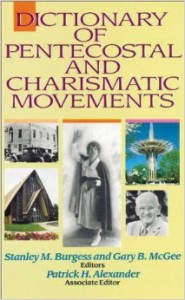
DICTIONARY OF PENTECOSTAL & CHARISMATIC MOVEMENTS – STANLEY M. BURGESS AND GARY B. MCGEE
JPC 60-Second Review: This is the definitive, all-in-one collection of people, preachers, pastors, leaders, events, movements, and doctrines of the Pentecostal and Charismatic movements since their formation. Well-illutrated, the DPCM consists of alphabetically arranged articles on everything from Azusa Street to William Seymour, the Church of God in Christ to Aimee Semple McPherson. Some articles cover a couple of pages while others are only a paragraph in length, but all are written by scholars who have researched their subjects meticulously. If you are Pentecostal, Charismatic or simply interested in the history of these movements, this book would be a great addition to your library.
A GODWARD LIFE – JOHN PIPER
JPC 60-Second Review: Often listed as a devotional work, A Godward Life is much more in that it focuses the reader on one issue and only one issue: how to live complete surrender to (and satisfaction in) the sovereignty of God. Where many devotionals are focused on us – our happiness, our contentment, our hope, our peace, AGW focuses first on God and invites the reader to come into who God is AS the goal. With entry into the all-satisfying Sovereignty of God then comes happiness, contentment, hope, peace, etc. Any book by Piper is a God-focused work and well worth your investment. Add Desiring God, God is the Gospel, and The Supremacy of God in Preaching and you’re set.
MERE CHRISTIANITY – C.S. LEWIS
JPC 60-Second Review: Between 1942 and 1944, during World War II, Lewis gave a series of radio “fireside talks” on the Christian faith. This scholar of reputation brought a grandfatherly tone to his talks, one that made the truths of Christianity clear to many. Later, these talks were compiled and printed, becoming Mere Christianity, a book that has become, for many, the most accessible apologetic for Christianity ever written. You’re sure to be familiar with many Lewis quotes from this book, but why not read them in their original context? This work still speaks well to people today; it’s pages will find their way into your Bible study, prayer, conversations, preaching and teaching. It’s a classic for a reason. Especially effective with college students and young adults.
DARWIN’S BLACK BOX – MICHAEL J. BEHE
From the Publisher:
Naming Darwin’s Black Box to the National Review’s list of the 100 most important nonfiction works of the twentieth century, George Gilder wrote that it “overthrows Darwin at the end of the twentieth century in the same way that quantum theory overthrew Newton at the beginning.”
Discussing the book in The New Yorker in May 2005, H. Allen Orr said of Behe, “he is the most prominent of the small circle of scientists working on intelligent design, and his arguments are by far the best known.”
From one end of the spectrum to the other, Darwin’s Black Box has established itself as the key text in the Intelligent Design movement—the one argument that must be addressed in order to determine whether Darwinian evolution is sufficient to explain life as we know it, or not.
JPC 60-Second Review: Yes, it’s biochemistry, but it’s powerful in its research, information, data, argument and presentation. Behe’s work reveals evolutionary science to be simply evolution as religion. Take your time and read carefully the book that make the top 100 list of important books written in the 20th century.
THE CLOSING OF THE AMERICAN MIND – ALLAN BLOOM
From the Publisher:
In 1987, eminent political philosopher Allan Bloom published The Closing of the American Mind, an appraisal of contemporary America that “hits with the approximate force and effect of electroshock therapy” (The New York Times) and has not only been vindicated, but has also become more urgent today.
In clear, spirited prose, Bloom argues that the social and political crises of contemporary America are part of a larger intellectual crisis: the result of a dangerous narrowing of curiosity and exploration by the university elites.
JPC 60-Second Review: Thirty years after writing this book, Bloom has been proven to be correct and painfully accurate in his assessment of higher education in America. Once hailed as the bastion of truth and truth-seeking, free thinking and free-speech, and science as science (rather than religion), the American university has become a compound of collective-think and collective-speak, the vanguard of attacks on free thinking and free speech, i.e., the primary instrument being used in the closing of the American mind. This is not a pretty book. But just try to deny the accuracy of Bloom’s research and writing.
THE QUEST FOR COSMIC JUSTICE – THOMAS SOWELL
From the Publisher: This is not a comforting book — it is a book about disturbing issues that are urgently important today and enduringly critical for the future.
It rejects both “merit” and historical redress as principles for guiding public policy. It shows how “peace” movements have led to war and to needless casualties in those wars. It argues that “equality” is neither right nor wrong, but meaningless.
The Quest for Cosmic Justice shows how confused conceptions of justice end up promoting injustice, how confused conceptions of equality end up promoting inequality, and how the tyranny of social visions prevents many people from confronting the actual consequences of their own beliefs and policies.
Those consequences include the steady and dangerous erosion of the fundamental principles of freedom — and the quiet repeal of the American revolution.
JPC 60-Second Review: This book is foundational to understanding America today and its naive view of utopian justice. What is desirable is not achievable, what is ideal is not realistic. To demand or expect what is not achievable or realistic is not justice, but injustice. True justice will come in the world to come, but in this world, our pursuit of justice must be founded on reality. The system to do just that is built into our nation’s Constitution.
WHY REVIVAL TARRIES – LEONARD RAVENHILL
No faith is required to do the possible.
We are so earthly minded we are of no heavenly use.
If we will do God’s work in God’s way at God’s time with God’s power, we will have God’s blessing.
There is a world of difference between knowing the Word of God and knowing the God of the Word.
God does not want partnership with us, but ownership of us.
No man is greater than his prayer life. The pastor who is not praying is playing; the people who are not praying are straying . . . Surely revival delays because prayer decays.
WISDOM OF OUR FATHERS – TIM RUSSERT
JPC 60-Second Review: Modern media has done more to destroy a healthy view of fathers than we have yet comprehended. Your favorite TV show features fathers as fools having little understanding or substance. Wisdom of Our Fathers crumples the media scripts and lets every day people write their own words about their fathers and what they have learned from them. Dads are not held up as perfect, but as what God intended fathers to be: exemplary leaders, guides, and yes, nurturers, of their children. Bring a tissue or two with you when you read Wisdom. I hope it brings fond memories of your father to mind. And for you men, I hope it inspires you to make not just some, but many, memories with your children as you share your life and wisdom with them.
WHAT THE BIBLE SAYS ABOUT THE HOLY SPIRIT – STANLEY M. HORTON
JPC 60-Second Review: Dr. Horton has written THE primer on the person and work of the Holy Spirit. At the same time, there’s more teaching and understanding here than you’ll find in 99% of the Systematic Theologies, Pneumatologies, and Theologies that populate the pages of the web or your favorite book store. Very readable and loaded with Scripture references, this is a book you will want to read from cover to cover and then keep close by for future reference.
On a personal note, while serving as Campus Pastor at Central Bible College in Springfield, MO, I was privileged to teach a five-week series on the Holy Spirit and Revival at at local church. As I entered the meeting room the first evening, a good thirty minutes before we were to begin, I noted that one individual was already present and praying. It was Dr. Stanley Horton. My heart leaped into my throat as I thought of the prospects of teaching Dr. Horton on the person and work of the Holy Spirit, and I shared this with him, asking if he wouldn’t take my place in teaching the series. Dr. Horton raised his hand in objection and replied, “No, no Pastor, I’ve come tonight to learn and I know that God will use you to teach me.” Now it was my turn to pray. I did remind my listeners that night and every night that one of my most treasured sources in teaching the series was What the Bible Says About the Holy Spirit. Yes, Dr. Horton was there every evening of the series, he stayed even for the extended prayer after the meetings, and yes, he was very gracious and kind to the teacher.
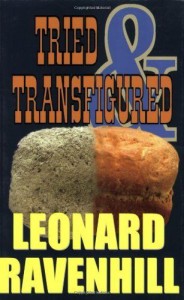
TRIED AND TRANSFIGURED – LEONARD RAVENHILL
JPC 60-Second Review: Like his other books, Ravenhill’s Tried and Transfigured will either light a fire in your soul or it will consume you this is content on fire! You won’t find it in the hands of church attenders or those who seek a comfortable Christianity: this is strong doctrine. The author studies the Temptation of Jesus and the Transfiguration of Jesus in teaching us about our temptations – from God’s perspective and from Satan’s perspective. After this, Ravenhill shows us that we do not have to be slaves to or victims of sin: transfiguration is possible through the grace and power of Jesus Christ. This is writing about your revival, the renewing God has for you personally in Christ. Read it slowly with your Bible at hand.
THE DREAM GIVER – BRUCE WILKINSON
JPC 60-Second Review: Essential read. Essential. Especially for youthful or young adults. Wilkinson has given us a great gift in this look at who God is, who God created-called each of us to be, and how to live in that Creation-Call with certainty and confidence. He writes a parable about a person named Ordinary and a larger-than-life figure named Dream Giver. Ordinary discovers his dream by coming to know the Dream Giver. Wilkinson then walks the parable into the reader’s life – applying, prodding and asking questions designed to call us into our Creator and Lord. You can read this book in an afternoon, but you’ll want to take your time, meditating on the questions Wilkinson asks, contemplating THE Dream Giver and whether or not you are living in His dream for you come true.
Recent Tweets
JPC Instagram
© [2015] — Journey Pastoral Coaching



